News
-
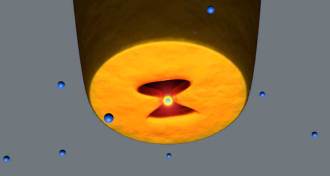 Physics
PhysicsLaser tweezers manipulate objects just 50 nanometers wide
Technique could allow scientists to move proteins, viruses and nanomaterials.
By Andrew Grant -
 Health & Medicine
Health & MedicineBereavement can take toll on health, not just emotions
In the month after a partner dies, spouse more prone to heart attack, stroke.
By Nathan Seppa -
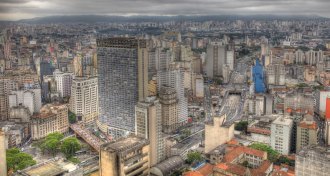 Psychology
PsychologySuicide rates drop in big cities
With more social connections, people may be less inclined to take their own lives.
By Meghan Rosen -
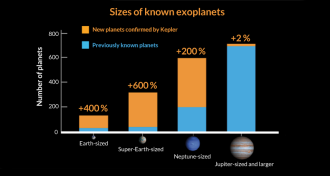 Astronomy
AstronomyKepler space telescope data uncovers 715 new planets
Astronomers used a new tool to quickly confirm the detection of exoplanets.
-
 Health & Medicine
Health & MedicineExperimental drug no Methuselah formula
Compound lets mice live healthier lives but doesn't extend life span.
-
 Neuroscience
NeuroscienceGirls may require more mutations than boys to develop autism
New results may help explain why more males wind up with autism.
-
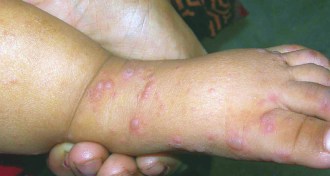 Health & Medicine
Health & MedicineExperimental vaccines protect children from hand, foot and mouth disease
Shots prevented cases resulting from enterovirus 71.
By Nathan Seppa -
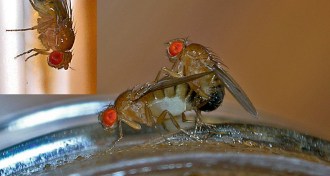 Life
LifeRivalry helps fruit flies maintain brainpower
In lab tests, males dim mentally after generations without competitors.
By Susan Milius -
 Physics
PhysicsQuantum droplet discovered
Electrons and holes gather to form a tiny, liquidlike particle.
By Andrew Grant -
 Climate
ClimateExtreme heat on the rise
Recent years saw an increase in peak high temperatures on land despite Earth’s stalled averages.
By Beth Mole -
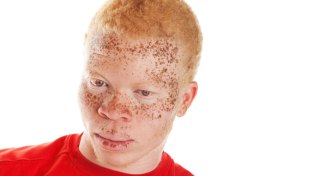 Anthropology
AnthropologyCancer proposed as spur for evolution of dark-skinned ancestors
Fatal ailments might have sparked DNA changes that yielded dark skin in human ancestors.
By Bruce Bower -
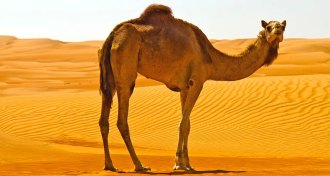 Health & Medicine
Health & MedicineCamels in Saudi Arabia teeming with MERS virus
Three-quarters of animals tested had signs of the MERS virus, which can be deadly in people.
By Beth Mole